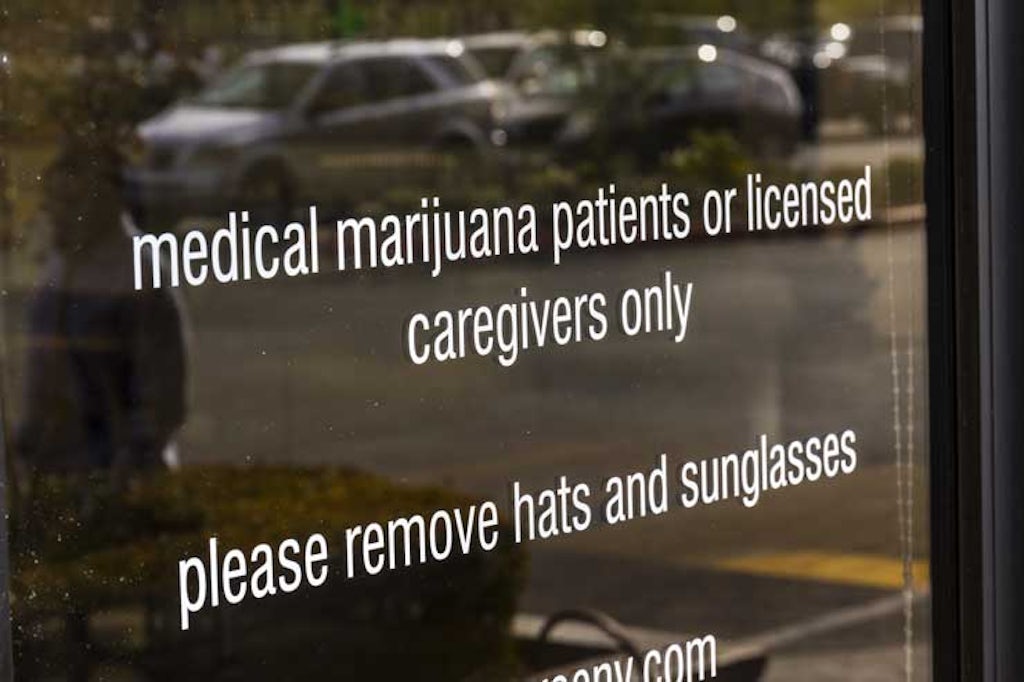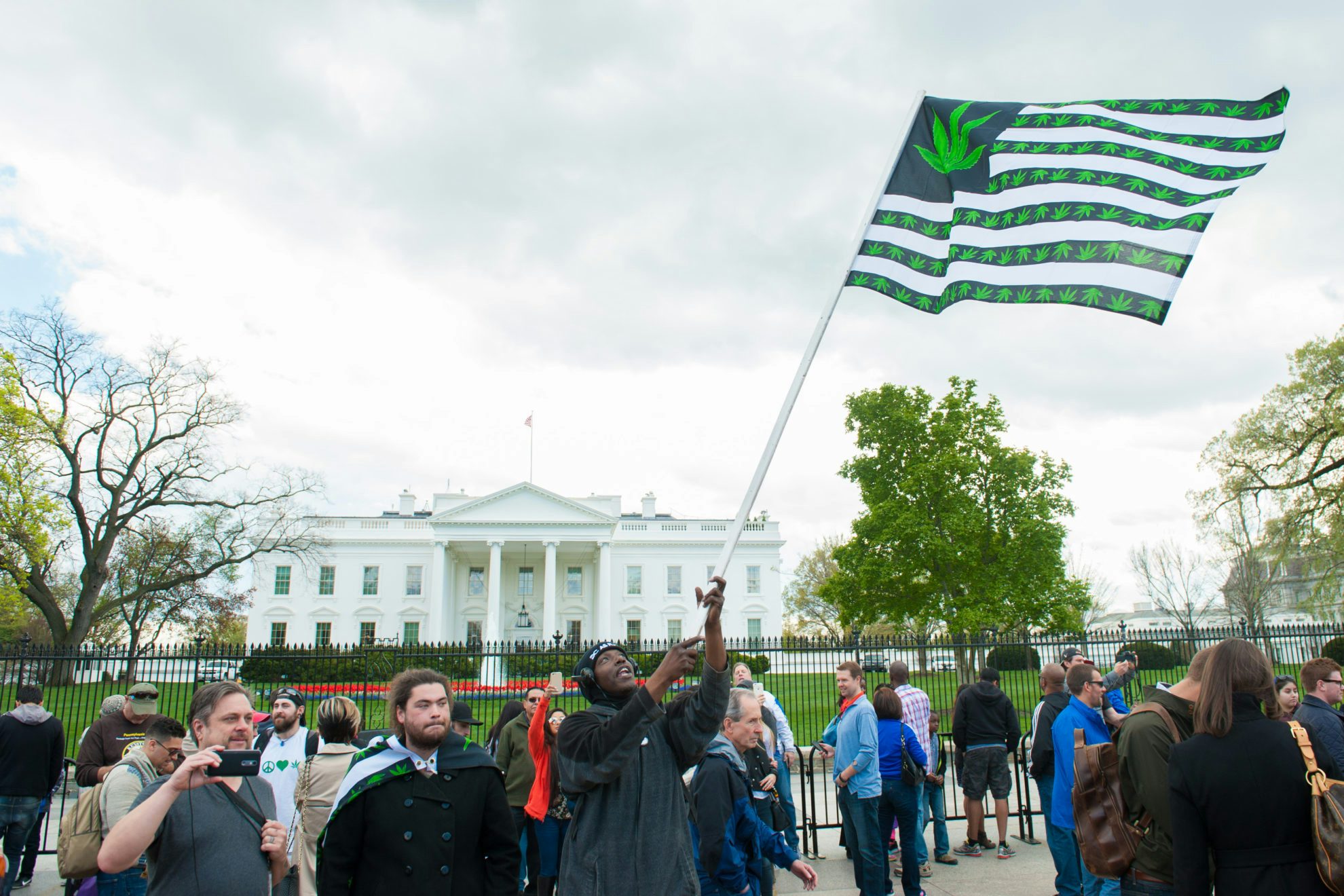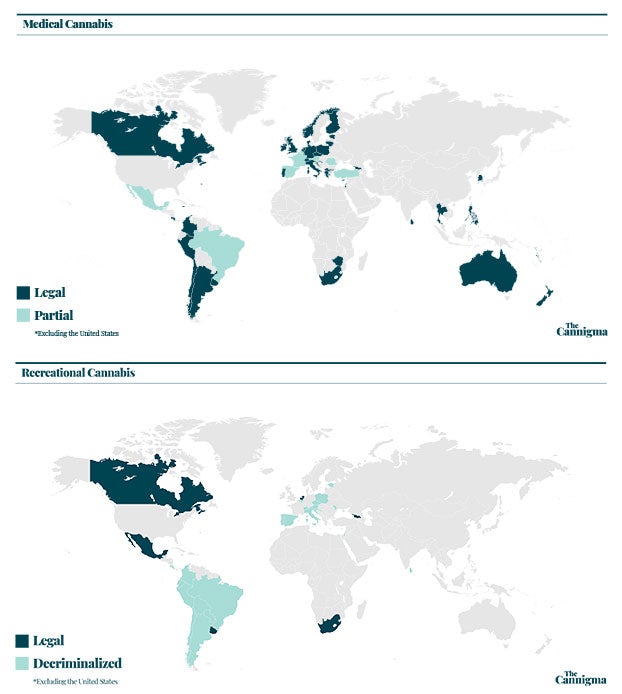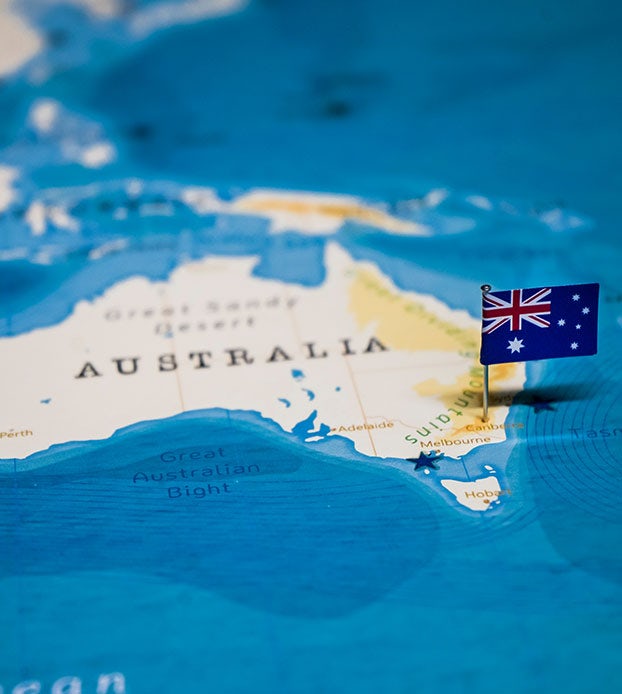If you’re a medical marijuana patient and you receive probation or are released on parole, will you still be legally allowed to use your medicine? It depends on where you live, and the answer is even more complicated by the conflict between the majority of states that allow medical marijuana and federal law, which still bans any use of cannabis.
Earlier this month, a federal judge in Pennsylvania ruled that a woman with a legal medical marijuana card issued by the commonwealth could not use cannabis while on probation for a charge of misappropriation of postal funds — a federal crime. According to PennLive.com, presiding U.S. Middle District Judge Mattthew W. Brann said that “from what he has read the medical benefits of marijuana have not been studied sufficiently.”
The plaintiff, Melissa Gass, uses medical cannabis to treat her epileptic seizures. “I went from having multiple seizures a day to having one every few months,” she said of her cannabis treatment in a press release at the time the lawsuit was filed. “Medical marijuana has been a lifesaver for me. This policy is a cruel blow.”
Upon receiving her medical marijuana ID card in February 2019, the lawsuit says she used Rick Simpson oil to end her seizures “almost instantaneously.” Seven months later, when her probation officer told her that she could not use medical marijuana, she stopped immediately, and had approximately 20 seizures over the next two weeks, according to the lawsuit.
Often the argument made for restricting access to medical marijuana is that while it may be legal in the state in question, it is still illegal on the federal level. The rationale being that someone should be required to follow all state and federal laws if they are under government supervision
In October, 2019, the American Civil Liberties Union of Pennsylvania filed a class-action lawsuit on behalf of three medical marijuana patients, challenging a policy of the Lebanon County court that prohibits people on probation who are registered medical marijuana patients from using their medication. The ACLU said that this policy — and that of other counties in Pennsylvania — contradict the commonwealth’s medical marijuana law, which legalized cannabis for medical purposes in 2016.
“Barring individuals who have been certified by a state-authorized physician from accessing medication to treat their serious medical conditions creates severe and potentially life-threatening medical risks,” the ACLU wrote, noting that there is no prohibition banning people on probation or parole from using opioids, even as the commonwealth has stated that “the opioid overdose epidemic is the worst public health crisis in Pennsylvania, and the nation, in almost a generation.”
The lawsuit was submitted a month after the Lebanon County court announced that people on probation, parole, or accelerated rehabilitative disposition (ARD) would not be allowed to use medical cannabis even if they are approved and registered with the Pennsylvania Department of Health. In October, the state’s supreme court placed a temporary halt on the policy’s enforcement, pending the outcome of the ACLU lawsuit, which remains open.

Gass, a 41-year-old mother of five, uses cannabis to treat grand mal seizures caused by epilepsy. She has also been diagnosed with post-traumatic stress disorder, anxiety, and depression.
The other two plaintiffs in the lawsuit are Ashley Bennett, who has PTSD and uses cannabis to control nausea caused by chronic abdominal pain, and Andrew Koch, who uses it to treat chronic pain, according to the ACLU.
Bennett, according to the lawsuit, is on probation for a December 2018 marijuana possession charge which occurred five months before she received a legal medical marijuana card. She was sentenced for that possession charge in September, 2019, four months after receiving a state permit to use and possess medical marijuana.
In May, the Pennsylvania Supreme Court held its first hearing in the lawsuit — online, due to social distancing restrictions of the coronavirus pandemic. During the hearing, an attorney representing Lebanon County courts stated that “the courts are charged with a greater responsibility than just doctors. The courts have to ensure that these petitioners get out of the criminal justice system and are rehabilitated.”
Different policies in different states
Much like medical marijuana laws across the country, there is no single nationwide policy regarding the use of cannabis for people on probation or other government supervision programs.
In Colorado, the state’s Supreme Court issued a ruling in 2019 stating that people in the state on probation may use medical mairjuana unless it is ruled that “the prohibition was necessary and appropriate to accomplish the goals of sentencing.”
In Arizona, the state Supreme Court issued two rulings in 2015 that would allow people on probation with valid medical-marijuana cards to continue to use their medication.
In California, “if a physician recommends that the probationer or defendant use medical marijuana, the probationer or defendant may request a modification of the conditions of probation or bail to authorities the use of medical marijuana.”
The bottom line: people who are on a supervised release program may want to consult their probation officer or an attorney in order to determine what their rights are regarding their legal medical marijuana status while on supervision.
Sign up for bi-weekly updates, packed full of cannabis education, recipes, and tips. Your inbox will love it.

 Shop
Shop Support
Support
















